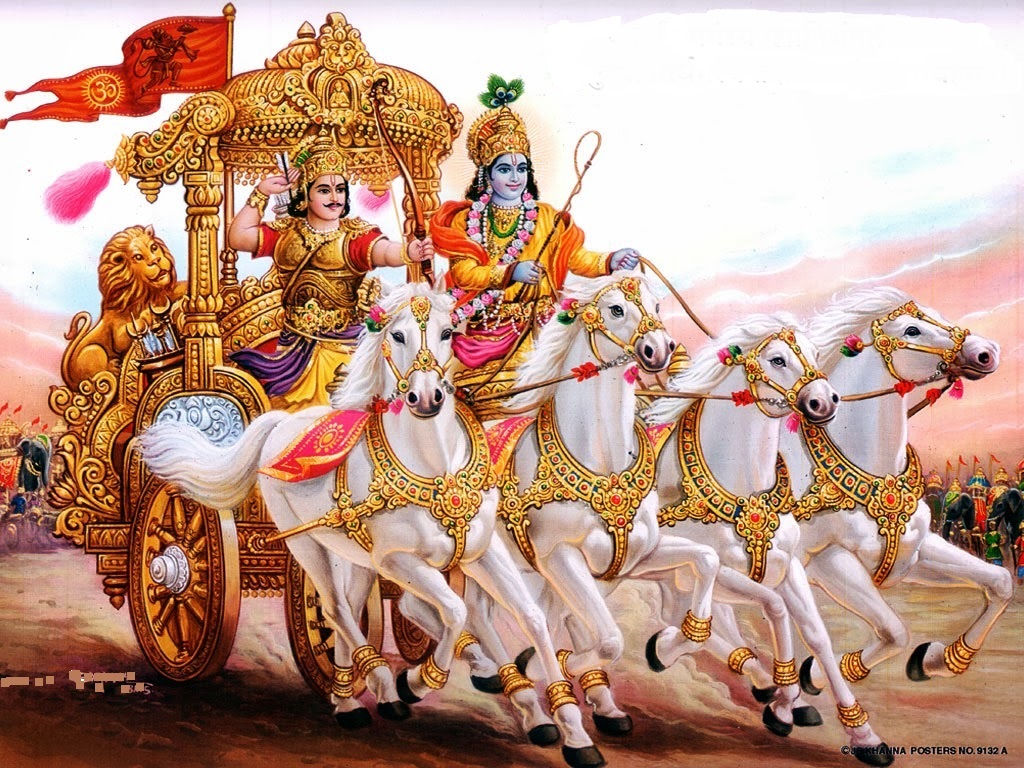The Philosophy of the Bhagavadgita-Chapter-2.1
04/11/2018
Chapter 2: The Battlefield of Life - 1.
We have seen that the occasion for the delivery of the Bhagavadgita was a field of war, which is conspicuous in its occurrence in the context of the Mahabharata. As we have observed earlier, the Bhagavadgita does not intend to tell us a story for entertaining in our leisure hours, but to give a permanent message for the salvation of the soul of the human being. That is why it is called a Yoga Shastra, or a scripture of Yoga. Whatever is said in this scripture is a sermon on the practice of Yoga, and the necessity for the teaching arises on account of a conflict in which one finds oneself at any given moment of time in one’s life. The whole of the Mahabharata is a story of conflict. We would gradually realise that the practice of Yoga resolves itself into a simple system of the overcoming and the balancing of forces for the purpose of resolving all conflicts.
The universe moves in two directions, one may say—the centripetal and the centrifugal. There is an outward centrifugal urge of the universe which propels it in the direction of space, time and externality. There is also a centripetal impulse to maintain its integrality of status inwardly, and these two tendencies in the universe represent the character of the whole of nature. And this character that we see in creation is sympathetically reflected in every one of us, so that we are also at every moment of time centrifugal and also centripetal; we have an externalising impulse towards activity, social relationship and contacts of various kinds, and at the same time we have a powerful impulse to maintain our integrality and status, as such. We do not wish to lose our independence in the name of outward relationship or even social welfare. All this is conditioned by a need we feel to maintain our freedom, which we may call our own status. Who would like to lose his status in the name of something else?
But, side by side with this impulse to retain our individuality or integrality of status, there is also a propulsion towards externalisation, which also we cannot resist. We run about day in and day out, demonstrating thereby that a complete inwardisation and maintenance of personal status is not the completion of life. This has to be set in tune or harmonised with the external world, or the universe. While we are bent upon maintaining our independence and status, we are also compelled, at the same time, to recognise the existence of other people in the world, things around us, the vast world in front of our eyes, with which we have to maintain a balanced relationship. While we are, in a sense, in a non-spatial and non-temporal indivisibility which we call the status we maintain, we are also in a world of space and time. We are like a double-edged sword which cuts both ways; or like a person who is pulled equally in two different directions, now one urge preponderating and now the other.
To be continued ..







Comments